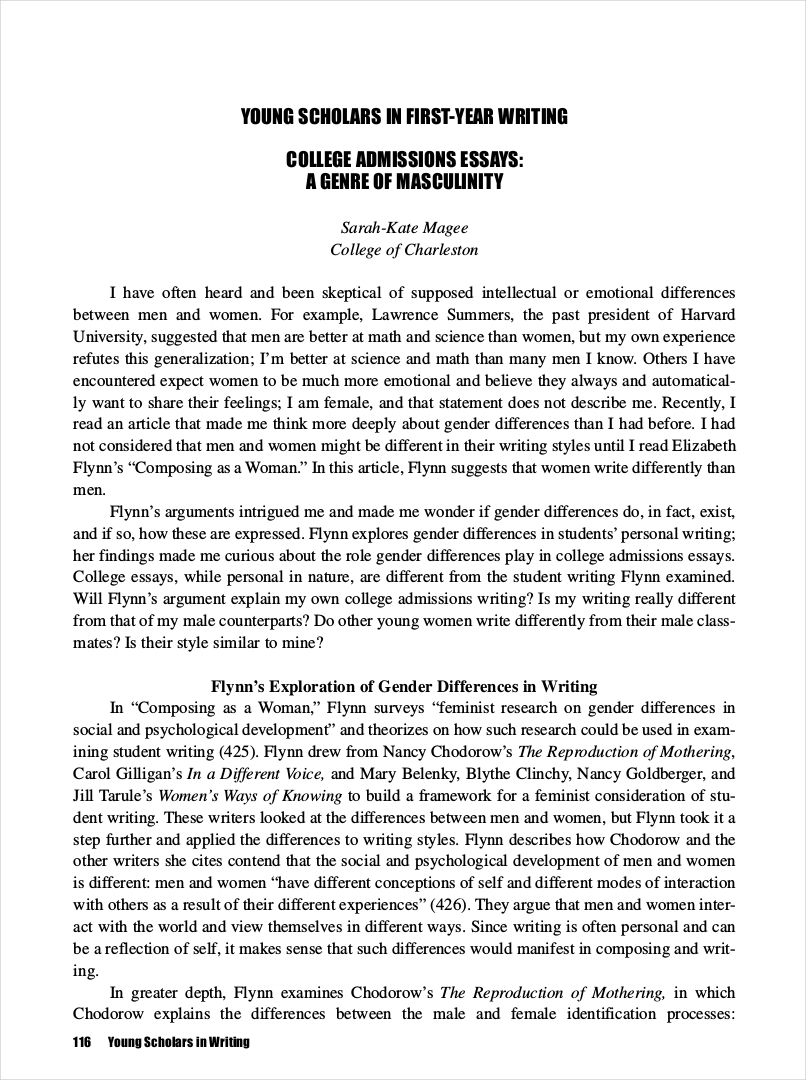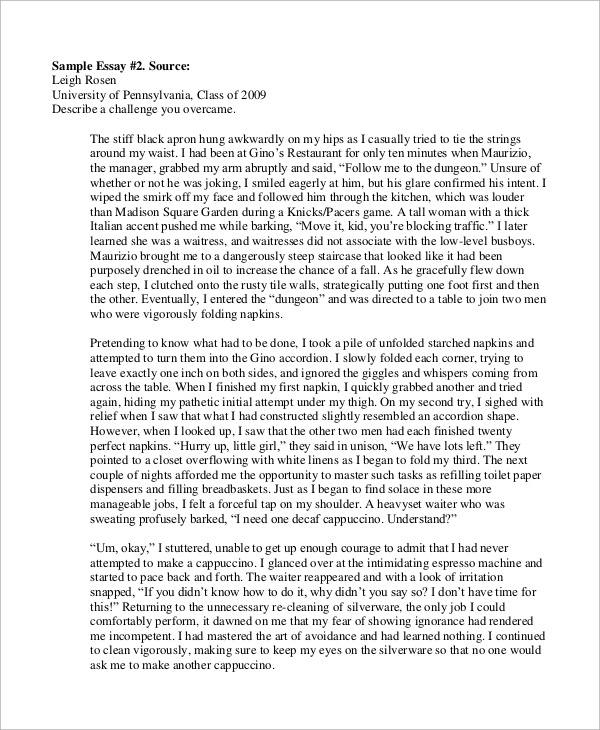
Mar 16, · Here’s another sample MBA personal statement that shows the impact of storytelling. This MBA letter of intent or application essay captures your attention with the very first sentence. It takes you on a journey. To prepare yourself, read some books for inspiration. Observe how good storytellers do it. Read articles on how to write an MBA essay Apr 24, · When it comes to writing a college admissions essay – whether personal or supplemental – experts advise students to follow the same rules: find their voice, write about a Oct 01, · To write a process essay, begin by writing an introduction that grabs the reader’s attention so they’ll want to keep reading. Then, end the first paragraph with a thesis statement presenting a problem for which you are offering a solution
Essay help online: fast and affordable essay writer
Last Updated: May 6, References. This article was co-authored by Jake Adams. With over 14 years of professional tutoring experience, Jake is dedicated to providing his clients the very best online tutoring experience and access to a network of excellent undergraduate and graduate-level tutors from top colleges all over the nation.
Jake holds a BS in International Business and Marketing from Pepperdine University. There are 17 references cited in this article, which can be found at the bottom of the page. This article has been viewedtimes, how to write good admissions essay. Writing a college-level essay can seem like a daunting task, but it doesn't need to be overwhelming.
Instead, break it up into steps. First, read your prompt carefully, then start compiling your research. While an admissions essay is typically on a personal topic, a college academic essay is formal and usually requires scholarly sources. Before you start writing, carefully research your topic and narrow your focus. Then make an outline, which will help you avoid tangents.
After you're finished writing, there's still a little work left to do. Take the time to revise and proofread your essay to ensure you're submitting your best work.
To write a good college essay, start by developing a concise thesis that clearly asserts your claim, how to write good admissions essay. One you have a working thesis, craft an introduction that lays the groundwork for your claims.
Following your introduction, you should include several body paragraphs, each of which should focus on one main topic that will help support the thesis. Finally, end your essay with a conclusion that offers a resolution to the subject. To learn how to revise your essay, keep reading!
Did this summary help you? Yes No. Log in Social login does not work in incognito and private browsers. Please how to write good admissions essay in with your username or email to continue. wikiHow Account. No account yet? Create an account. Community Dashboard Write an Article Request a New Article More Ideas Edit this Article.
Courses New Computer Skills New Dating Advice New Expert Videos About wikiHow Pro Upgrade Sign In. Home Random Browse Articles Courses New About wikiHow Easy Ways to Help Approve Questions Fix Spelling Quiz App More Things to Try We use cookies to make wikiHow great. By using our site, you agree to our cookie policy. Cookie Settings, how to write good admissions essay.
wikiHow is where trusted research and expert knowledge come together. Learn why people trust wikiHow. Download Article Explore this Article parts. Writing Help. Tips and Warnings. Related Articles. Article Summary. Co-authored by Jake Adams Last Updated: How to write good admissions essay 6, References. Part 1 of Read your assignment carefully. Review the prompt and ensure you clearly understand the assignment.
Your assignment instructions may include a breakdown of how your work will be graded e. If the grading criteria aren't clearly explained in the instructions, ask your teacher or professor to explain their rubric. If any part of the prompt seems unclear or confusing, don't hesitate to ask your professor for help. Compile your sources and evidence. An academic essay needs to support its claims with solid evidence. Head to your library, hit the books, and surf the web for credible, authoritative sources on your topic.
Secondary sources, such as scholarly articles or books, are publications by experts on your topic. Cite secondary sources to back your argument, or mention a source in your counterargument to refute the claims of its author. If you have trouble tracking down good sources, ask a librarian or your professor for help. Your course syllabus likely includes useful texts, too.
Check their reference or further reading sections for additional leads. Your school or university library likely subscribes to academic research databases like EBSCO and J-STOR. Log in to your library's website to access these resources. You can also use free online resources like Google Scholar. Brainstorm to come up with ideas. Now that you've done your research, you're ready to put together some ideas for your essay.
There are lots of ways to brainstorm, and you'll probably find that you prefer one over others. In any case, it's best to jot down your ideas by hand when you brainstorm instead of keeping them all jumbled in your head. Draw lines between connected concepts and make smaller bubbles for terms connected to larger ideas. Bullet point lists could help you gain a bird's-eye-view over your material.
Write what you know about the topic for 15 or 20 minutes without censoring your ideas. Organize your ideas into an argument. Review your prompt, brainstorming materials, and research notes. Write down a few main ideas you want to focus on, then revise those ideas into an assertion that responds to the essay prompt. Suppose you need to compare and contrast 2 literary works. You've analyzed each example, and you've identified how their elements function.
They both employ nostalgic appeals to emotion, so you'll assert that the works use similar persuasive strategies to advance opposed ideologies. Come up with a concise thesis statement. Refine your argument into a clear and concise sentence, which will serve as your essay's thesis. While your thesis will help you stay on track through the drafting process, bear in mind you'll likely tweak it as your essay evolves.
It lets the reader know exactly what you're trying to prove. Part 2 of Outline your essay's structure. Write out your thesis on the top of the page, how to write good admissions essay, then list Roman numerals I, how to write good admissions essay.
how to write good admissions essay letters A. for the body paragraphs or sections. Add each paragraph or section's main idea, write bullet points or numbers 1.
under the section, then fill in supporting details next to the numbers. For instance, next to section III-B-3, write the source you plan on citing, e. Write your introduction.
Depending on your assignment, you might start off with an attention-grabbing topic sentence. How to write good admissions essay, it's common for academic essays to how to write good admissions essay straight to the point and put the thesis front and center, how to write good admissions essay.
The sentences after the thesis then map out the rest of the essay, which lets the reader know what to expect in the coming paragraphs. The road map should mention the evidence you'll use to prove the thesis. Do whichever feels more comfortable. Your outline could help you structure your introduction, or your intro might lay out a road map for your outline. Fill in your body paragraphs. Now comes the grunt work!
Working section by section, put together the pieces of your argument. Transitions are key, so make sure your paragraphs and sections are logically connected. That structure won't work if your argument calls for a more complex structure, or if your paper needs to be 10 or 15 pages.
For instance, in the first 2 or 3 paragraphs after the introduction, you'd need to discuss how la voyage was a recurring theme in French Romantic poetry in the 19th Century. Since the thesis argues that this conception owes to his personal experiences, you'd then discuss how city life and travel abroad shaped Baudelaire's poetry.
Strengthen your claim by addressing a counterargument. While you won't always need a counterargument, including one makes your thesis more convincing.
Reading My College Essay That Got Me Accepted Into Duke, USC, and UT Austin + Why My Essay Worked
, time: 11:07How to Write the Perfect Harvard Essay: 3 Expert Tips

How To Write A College Essay? In order to make you clear how our experts work for you, below is a step by step process of writing a great admission college essay: Planning and Organizing. Detailed and proper planning is necessary to write a compelling essay. For this, you need time, research, dedication, patience, and willpower Essay Question for the Class of The great books curriculum, two campuses, and lively, discussion-based classes make St. John’s College different. What about St. John’s interests you most? Which aspect of the curriculum or author in the curriculum intrigues you most? As with any skill, the key to learning how to write an ACT essay is to study a good model (which we are going to cover in this article) and then practice, practice, practice. Tackling ACT Writing, Step by Step. The ACT essay plan below has been modified from our ACT Essay Tips article to fit the new ACT Writing
No comments:
Post a Comment